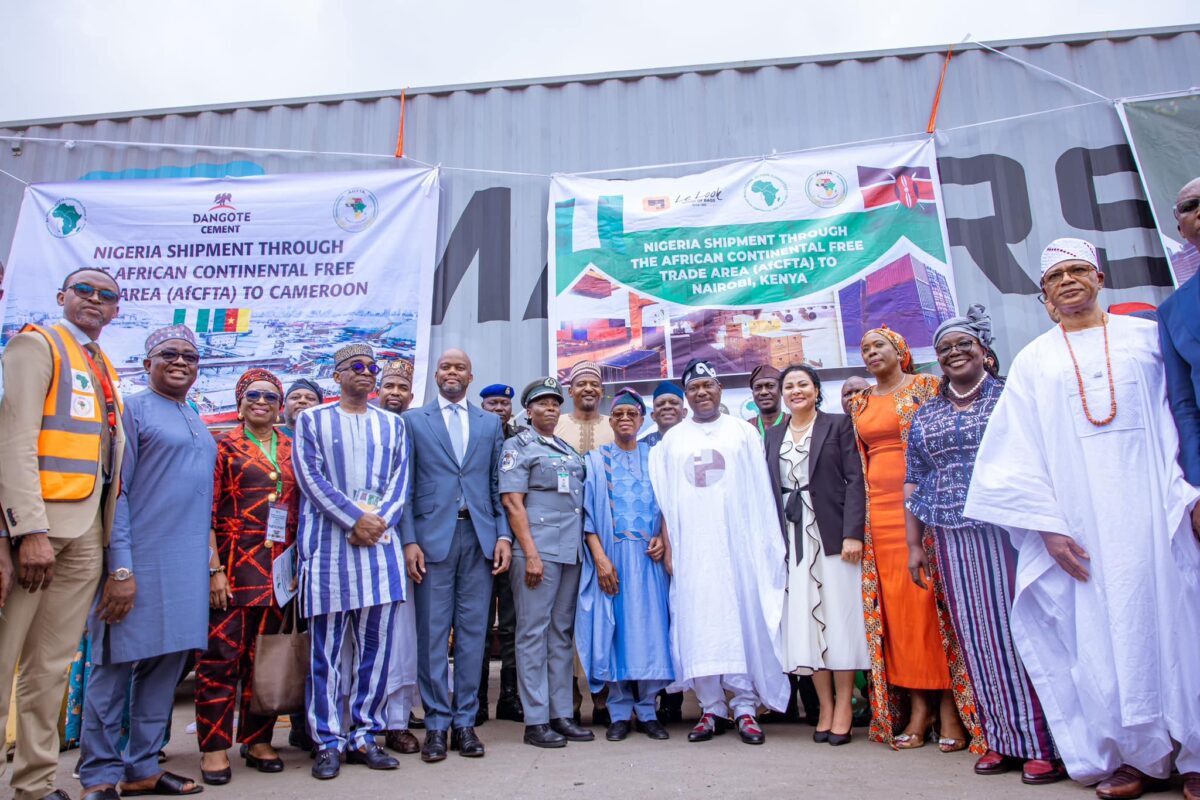
About two weeks ago, Nigeria joined the league of nations that have commenced trading on the African Continental Free Trade Area (AfCFTA).
The Federal Government expectedly seized the opportunity to reaffirm its dedication to ensuring that Nigerian businesses, both small and large, will benefit from the $50 billion African Continental Free Trade Area (AfCFTA).
Prior to the recent achievement, Nigeria had failed many deadlines to begin the trading, apparently due to tardy internal processes and conflict of interests.
Apart from commencement of trading, it also took Nigeria many years to accede to the agreement in July, 2019. So, Nigeria actually started the GTI exactly four years after signing on to the AfCFTA, and about two years after the first set of countries commenced trading.
More than 10 countries representing the five regions of the continent, namely: Cameroon, Egypt, Ghana, Kenya, Mauritius, Rwanda, Tanzania and Tunisia, among others have successfully commenced participation in the AfCFTA’s Guided Trade Initiative (GTI).
The African Union says that the African Continental Free Trade Area which took-off on January 1, 2021 will create the world’s largest free trade area. They says it will change the previous narrative of Africa’s disdain for intra-nations trading.
According to the General Agreement on Tariffs and Trade (GATT), a free-trade area is an agreement among a group of two or more customs territories in which the duties and other restrictive regulations of commerce are eliminated on key provisions of the treaty.
While Nigeria was foot-dragging, some countries had already started trading on the AfCFTA platform.
According to research by the African Development Bank in 2014, only 16% of international trade by African countries takes place between African countries.
The African Continental Free Trade Area (AfCFTA) is expected to cover all 55 countries of over 1.2 billion people and a gross domestic product (GDP) in excess of USD 2.5 trillion. The scope of the Agreement covers trade in goods, services, investment, intellectual property rights and competition policy.
The AU therefore estimates that implementing AfCFTA will lead to around a 60% boost in intra-African trade.
While congratulating Nigeria for the eventual flag-off, we urge that the Federal Government should not stop at the ceremony of participating in the GTI. Nigeria has a lot to gain from increasing access to its goods and services to a wider African market.
That it took Nigeria this long to commence trading is a confirmation of the fact that, Nigeria and her officials have been sound-biting for long. It created a designated agency-the National Action Committee (NAC) which to say the least, has been less than effective. For these years, despite being given the opportunities, the NAC failed to galvanise Nigeria’s participation in AfCFTA.
For years, NAC and the supervisory federal ministry had been telling Nigerians how much the continental market is worth, and how we are losing by not participating in the 3.4 trillion-dollar economic bloc.
At a point, the Manufacturers Association of Nigeria (MAN), also cried out about Nigeria’s slow pace. That was the position of the CEO of Centre for the Promotion of Private Enterprise (CPPE); Dr Muda Yusuf who also cried out that Nigerian stakeholders, especially business people had not been adequately informed about the protocols and what goods they can export with free duty to our African countries.
We ask this question – What do these countries: Rwanda, Cameroun, Egypt, Ghana, Kenya, Mauritius and Tanzania and others that have been selected to start trading under the continental trade framework have that Nigeria did not have, that it took us years to join the league.
Perhaps, the answer is that, these countries are well-prepared in terms of in-country policies, they have a well-structured trading system, they have a more functional system
Failure to fully-understand the demands of AfCFTA, especially the basics for trading and instituting a directionless in-country committee to spearhead the process is the bane of Nigeria participation in AfCFTA.
We guess that all these worries are over now, with the pioneer traders taking the lead and breaking the jinx of the nation’s back bencher position.
We hold the NAC accountable for the fact that Nigeria took so long to join, because of non-ratification of some of the six mandatory protocols that were needed for all participating countries under the terms and conditions.
Even though we had called for his sack on this page before, apparently because of the failure of the NAC which he inherited, we however express our congratulations to the head of the body; Mr Segun Awolowo. Even if it took long, he has broken the jinx.
It is not yet uhuru for Nigeria. While it is great to have taken- off, sustaining the tempo is more important. Nigeria needs an enabling environment that supports businesses, fosters innovation, and enhances competitiveness. In actual fact, we don’t have that at the moment.
We are happy that President Bola Tinubu has assured that the federal government will offer a conducive environment for Nigeria to beneficially participate in AfCFTA. He should walk the talk by effectively supporting the manufacturing sector to thrive.
Yes, the president has emphasized that making AfCFTA work is a compelling necessity for Nigeria, requiring significant commitment and determination. He should back that up by removing the prevailing bottlenecks that are militating against competitive pricing of Nigeria-manufactured goods.
Nigerian manufacturers can not compete in the continental market if energy and general cost of production (including capital) is as high as they are at the moment.















